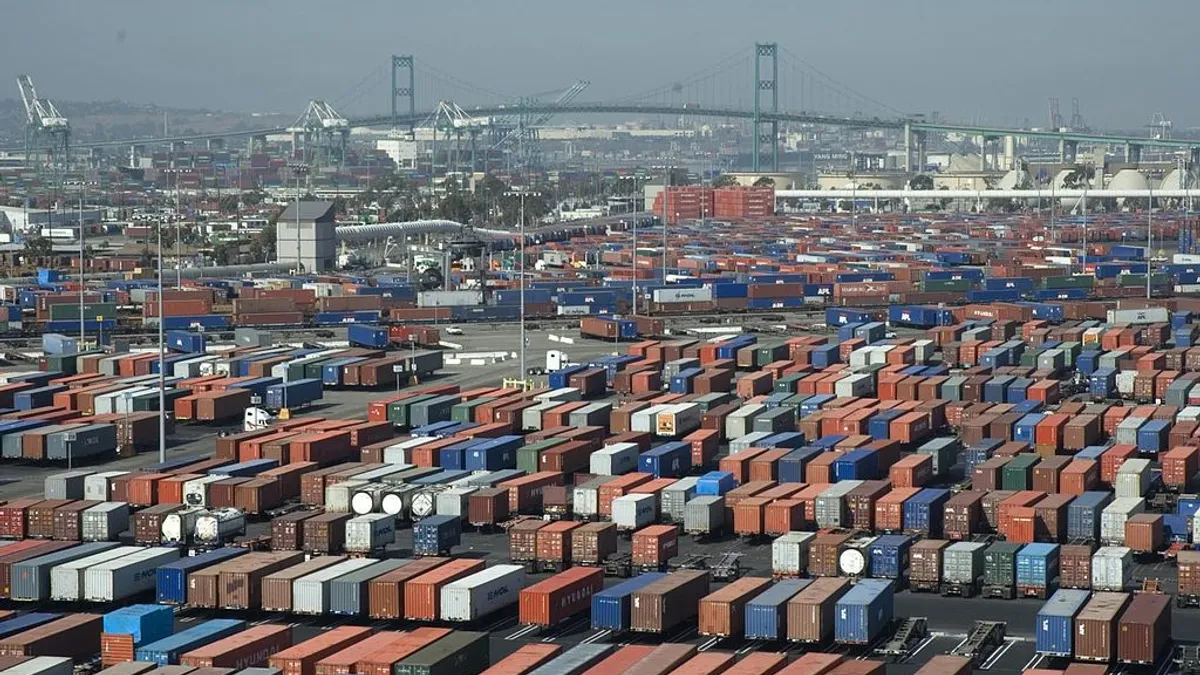Dive Brief:
- California's South Coast Air Quality Management District (SCAQMD), an air pollution regulator, has proposed both a $35 and a $100 container tax per TEU, American Shipper reported last week.
- Unsurprisingly, shippers, transportation, distributors, and logistics companies are utterly against the tax, stating that it lacks forethought and consideration of the local shipping industry, and will ultimately result in economic harm.
- SCAQMD would use the revenue collected by the tax to grow its clean air initiatives, possibly replacing drayage trucks and further filtering ship air pollution via in-port methods.
Dive Insight:
The industry's opposition to a container tax is an old tale of business resistance to regulation, grounded in claims that regulators do not effectively foresee negative economic consequences of their proposals.
While the California agency's pollution-controlling initiative is for a good cause, such widespread resistance suggests the proposal could do more harm than good in this case. Like in the case of chassis fees, taxing per container may drive out business altogether due to heavily increased costs, and therefore fail to raise needed funds. Ports, after all, are in competition with one another for business.
Industry resistance to regulation is not uncommon, and has often been successful on the grounds of a lack of evidence.
Within trucking, the proposed speed limiter rule unleashed a wealth of negative commentary by those affected. Originally suggested as a means of reducing highway accidents and deaths, many truckers felt that a forced slower-than-traffic speed would create more danger rather than less, by causing more vehicles to speed up or change lanes to pass the larger, slower truck.
The effect on the supply chain would have been likewise negative. Limiting driving speed would slow the chain as lead times would necessarily increase. Cumulatively therefore, with an unproven safety effect, and a newly slowed supply chain, the industry resisted — and won (by default, as the Trump administration is unlikely to push it forward).
Meanwhile, the trucking industry ultimately lost the battle over mandated electronic logging devices although it managed to delay it for over a decade via court challenges. All in all, resistance to a container fee is unlikely to subside any time soon ... the question is whether the SCAQMD will give in or wait to take the battle to court.














